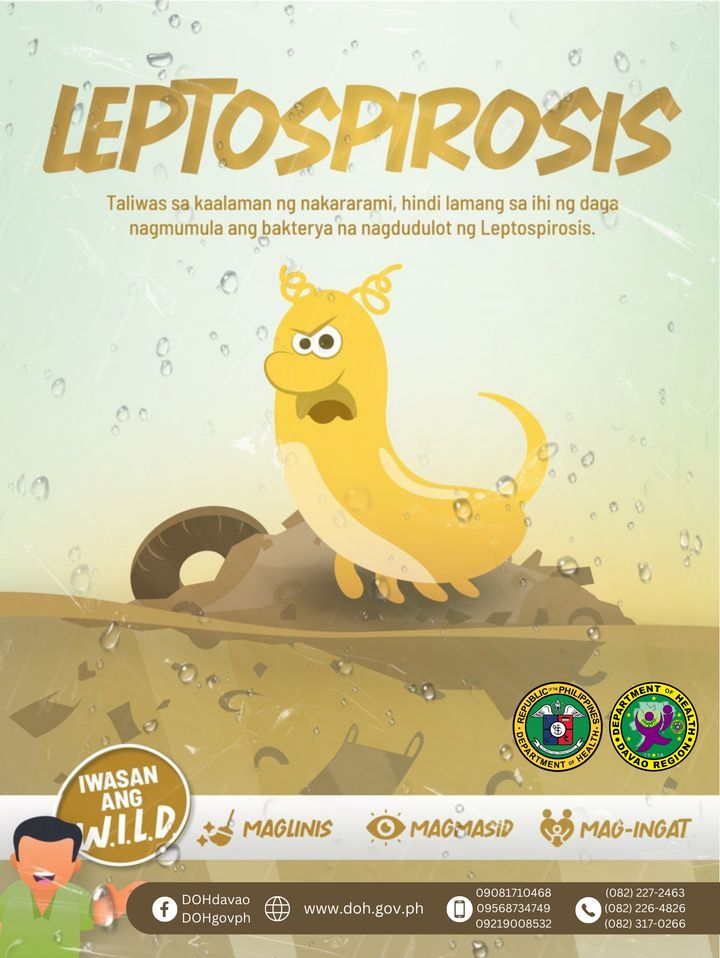NewsDesk @bactiman63
On the northwestern coast of Luzon, Philippines, officials with the Department of Health locos Region (DOH-1) are reporting a 60 percent increase in leptospirosis cases through July 22 this year.
 Health officials of the region that covers four provinces: Ilocos Norte; Ilocos Sur; La Union; Pangasinan, report 45 cases to date, up from 28 cases during the same period last year.
Health officials of the region that covers four provinces: Ilocos Norte; Ilocos Sur; La Union; Pangasinan, report 45 cases to date, up from 28 cases during the same period last year.
In addition, deaths due to leptospirosis have increased 21 percent during this period in the region.
This has prompted health officials to warn residents of the risks of the bacterial disease amid the rainy season and flooding in the region. DOH-1 regional director Paula Paz Sydiongco strongly cautioned the public not to wade in floodwaters as it can be contaminated with the leptospira bacteria.
According to DOH-1 medical officer Dr. Rheuel Bobis, the DOH has turned over doxycycline and antibiotics to provincial government health offices and is ready to be distributed to the local government units should the need arise.
Subscribe to Outbreak News TV on YouTube
According to the CDC, Leptospirosis is a disease caused by bacteria. Infected animals spread the bacteria through their urine (pee). When infected animals pee, the bacteria get into the water or soil and can live there for weeks to months.
You can be infected if you touch fresh water, soil, or other objects contaminated with infected animal urine. The most common ways to get infected is urine or contaminated water getting in your eyes, nose, mouth, or broken skin (such as a cut or scratch). You can also get infected by eating contaminated food or drinking contaminated water.
Philippines dengue tally eclipses 80,000 in 2023 to date
Some people with leptospirosis do not have any symptoms. When symptoms occur, they can include fever, headache, chills, muscle aches, vomiting, jaundice (yellow eyes and skin), red eyes, stomach pain, diarrhea, and sometimes a rash. Without proper treatment with antibiotics, people with leptospirosis may develop serious problems with their kidneys, liver, or lining of the brain and spinal cord (meningitis). In some cases, leptospirosis can cause death.
- Florida reports 9th Eastern Equine Encephalitis in a horse this year
- Dengue deaths top 300 in record setting year in Bangladesh
- Philippines: Dengue cases nearly doubled in Davao Region
- Crimean-Congo hemorrhagic fever case reported in North Macedonia
- South Korea issues nationwide malaria alert
- Brazil: Study points to environmental factors associated with the reduction of schistosomiasis and hookworm
- Bolivia: Dr. Néstor Morales Villazón ‘INLASA’ finds Paracoccidioidomycosis in lung biopsy tissue


3 thoughts on “Leptospirosis cases up in the Ilocos Region, Philippines”